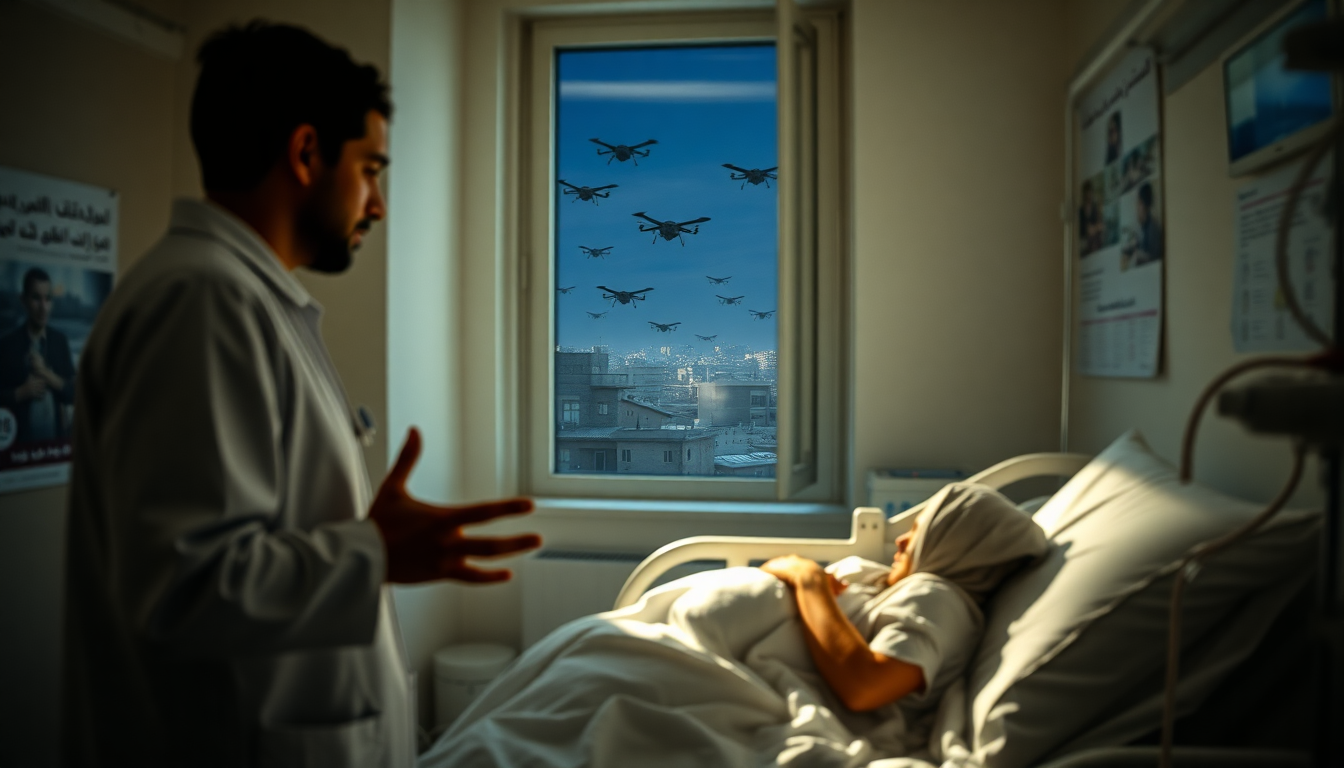Table of Contents
In the midst of chaos, life insists on emerging. Picture this: a medical intern working the night shift in the obstetrics and gynecology department of Assahaba Medical Complex in Gaza City. As they navigate the stark realities of childbirth in a war zone, the backdrop of continuous drone activity and the shadows of conflict create a grim picture.
Yet, within those hospital walls, the spirit of resilience shines through. This narrative captures not only the struggles faced but also the profound hope that each new life represents.
The Stark Reality of Childbirth in Gaza
At 2 AM in the emergency department, the calm is abruptly shattered by the cries of a woman in distress.
The medical team rushes in, only to be met with devastating news—she has lost her unborn child. Just weeks after her wedding, she now faces the dual heartbreak of losing her husband in an air raid and the child she had hoped would carry on his memory.
Can you imagine the emotional weight of such loss? It hangs heavy in the air, evident in her silence and despair.
In these heart-wrenching moments, the intern reflects on the paradox of life amidst death. Each delivery becomes a testament to the endurance of women who continue to embrace motherhood, despite overwhelming fear and uncertainty.
The harsh conditions—bombings, hunger, and a lack of medical supplies—only compound the already difficult process of childbirth. Pregnant women arrive exhausted and in pain, often without access to adequate pain relief. The intern, while skilled, can only feel powerless as they stitch wounds and provide care with limited resources.
Yet, the stories of these women are not solely rooted in tragedy. They are interwoven with tales of hope and resilience. Each new birth stands as a symbol of defiance against the backdrop of conflict, a reminder that life continues even in the most challenging circumstances.
These mothers hold onto the belief that their children will carry forth an important message: that Gaza, despite its struggles, will not be erased.
Challenges Faced by Medical Professionals
So, what does it really mean to work in a hospital overwhelmed by conflict? Medical professionals face staggering challenges daily. With a severe shortage of supplies, the intern and their colleagues must make gut-wrenching decisions about how to allocate resources. Gauze, sutures, and medications are in short supply, forcing healthcare workers to operate under conditions that would be unacceptable elsewhere. The fear of running out of essential supplies looms large, along with the constant threat of power outages that plunge the delivery room into darkness.
Imagine this harrowing scene: electricity fails just moments after a baby is born. Using phone flashlights to illuminate the room, the intern navigates through the darkness, balancing the urgent needs of mothers and newborns while grappling with a lack of basic infrastructure. The absence of guidance from overworked doctors complicates their learning experience, yet the intern remains committed to soaking up as much knowledge as possible. Isn’t that determination remarkable?
Amidst the overwhelming nature of their work, fleeting moments of joy punctuate the exhaustion. A routine check-up turns into a celebration when a young girl excitedly expresses her desire for a baby brother, offering a poignant reminder of innocence amidst chaos. Another mother, initially told her baby’s heart had stopped beating, experiences sheer joy when a heartbeat is detected during an ultrasound. These instances of hope are vital for both the medical staff and the families they serve, reinforcing the purpose of their work.
Celebrating New Life in the Face of Adversity
As dawn breaks, the hospital welcomes another child into the world—a beacon of hope for a mother who has faced unimaginable fear. For those in Gaza, the juxtaposition of joy and sorrow is a daily reality. Each birth is celebrated, yet it also serves as a stark reminder of the fragility of life in a war zone. The mother, filled with tears of joy, embodies the strength of those who refuse to be defined by their circumstances.
The experiences shared by the intern illustrate not only the struggles of delivering life in a conflict zone but also the unwavering spirit of those who continue to hope for a better future. The resilience of mothers, the dedication of medical professionals, and the determination of a community to persevere weave powerful narratives that echo well beyond the walls of the hospital.
Ultimately, the intern’s journey is a testament to the enduring nature of hope and the celebration of life, reminding us that even in the darkest of times, light can still emerge—one birth at a time.





